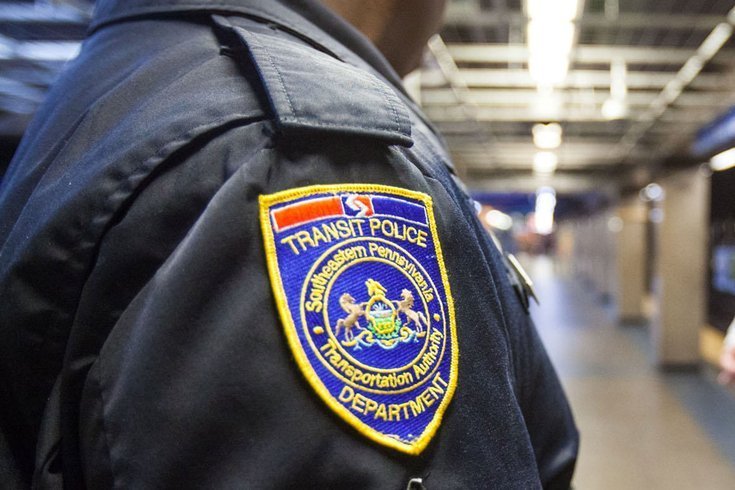
October 09, 2023
 Thom Carroll/for PhillyVoice
Thom Carroll/for PhillyVoice
The Fraternal Order of Transit Police Lodge 109, the union representing SEPTA Transit Police officers, has voted to authorize a strike as it seeks a new contract.
SEPTA's Transit Police union has voted to authorize a strike after months of stalled contract negotiations.
The 175 members of Fraternal Order of Transit Police Lodge 109 have been working with an expired contract since March. The strike authorization vote, held Friday, now gives them the option to walk off the job. But President Omari Bervine said a strike date has not been set and that workers would prefer to avoid it.
"We're going to try to keep getting back to the table. If it was up to us, we'd be at the table now," Bervine said. "We're going to continue to bargain in good faith. Maybe we'll be able to avoid a strike. Nobody wants that. Right now, we're at an impasse."
SEPTA potentially could be dealing with two separate strikes in the weeks to come.
That's because Transport Workers Union Local 234, SEPTA's largest labor union, voted to authorize a strike earlier this month. That union represents about 5,000 mechanics and operators of SEPTA's buses, trolleys and subway lines. Their contract expires Oct. 31.
Bervine said inadequate compensation and problems with equipment and facilities are hampering the ability of SEPTA Transit Police to retain officers.
"We've been just hemorrhaging officers to other departments," Bervine said Monday. "We couldn't keep anybody to the point where it was so unsafe that we had state senators coming down from Harrisburg grilling SEPTA on the safety of their system. But that's because we're so understaffed."
SEPTA's plummeting ridership during the COVID-19 pandemic coincided with a rise in crime and public safety issues across the transit system. Ridership remained at just 64% of the pre-pandemic baseline in August, and as remaining federal aid draws to an end next summer, SEPTA's financial picture could become dire without more state funding.
SEPTA's negotiations with labor unions are unfolding against this backdrop. The authority is in negotiations with several of the 14 unions that make up its workforce.
"SEPTA is committed to continuing a dialogue with the mediator and FOTP leadership to reach an agreement on a new contract," SEPTA spokesperson Andrew Busch said.
Last year, Bervine said the union was frustrated with what it considered "self-inflicted" recruitment challenges for Transit Police. SEPTA reached a side agreement with the union in July 2022 — separate from the union's annual contract — to address this issue by increasing the starting pay of transit police officers by 25%. The goal was to make the department more competitive at recruiting officers.
The side agreement also shortened the length of time officers need to remain with Transit Police to reach the top pay rate. The top rate does not cap what officers can earn. They also receive longevity increases after reaching various longer-term milestones.
While there has been progress in recruitment since the side agreement took effect, Bervine said the department still struggles to keep officers from leaving. Many Transit Police leave the department to take jobs with Philadelphia Police, Temple Police, Amtrak Police and other agencies, he said.
"We do a pretty decent job in hiring. It's the retention where we fall flat," Bervine said. "It's almost like we're a training ground for officers, and then they go to the jobs that they really want. That's what we're trying to correct in these negotiations. We're trying to get people to want to be here."
The union wants to negotiate a new contract that brings pay for mid-level and senior officers more closely in line with competing departments.
In May, SEPTA promoted Charles Lawson as chief of the Transit Police. The 29-year veteran had been named the interim chief after Thomas Nestel III resigned last year. Bervine said the department's work environment has improved.
"There's definitely been a boost in morale. It's a more welcome management style ... it's just the issues with pay, working conditions and the state of our equipment and vehicles remain the same," Bervine said. "The same core issues that were causing us to lose officers before are causing us to lose officers now at an alarming rate."
SEPTA workers last went on strike in 2016, when buses, trolleys and the city's two main subway lines stopped running for six days. SEPTA has been called the most strike-prone transit agency in the United States. Workers have walked off the job at least 10 times since 1971.